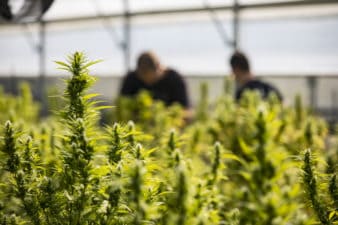Village Farms International (TSX:VFF)(NASDAQ:VFF) has undergone quite the transformation since 2014.
I especially know this because I was a shareholder in the company back then, attracted to what I viewed as an undervalued owner of some pretty valuable real estate. It had some impressive greenhouses, facilities used to grow tomatoes, green peppers, and other vegetables.
I crunched the numbers and estimated the value of this real estate to be approximately $2 per share. The stock was trading at $0.80. This was an acceptable margin of safety, so I loaded up.
The story had a happy ending, at least at the time. I sold my shares in the $1.50 range after a rival company announced a big stake in Village Farms. The market was speculating a takeover offer would come, so I took advantage of the hype. It turns out the takeover never came, so I was smart to have sold — or at least I thought at the time, anyway.
What’s happened since
Village Farms is a completely transformed company when compared to the 2014 edition.
The company still grows some vegetables but has mostly pivoted to marijuana production. Its Texas-based greenhouses are being shifted to start growing hemp, paving the way for an easy transition to marijuana production once it becomes fully legal in the United States. Pundits think this will happen; it’s only a matter of time.
Village Farms has transformed itself into a major player in the marijuana space almost overnight. It has already converted 2.2 million square feet of greenhouse space into marijuana production, which is enough for an annual yield of 150,000 kg. The company’s marijuana partner, Pure Sunfarms, also has an option to lease an additional 2.6 million square feet of greenhouse space that’s currently being used to grow vegetables.
The company is well positioned to really start ramping up pot growth, with full production expected in 2021. This is a great place to be in; other pot producers aren’t able to move nearly as fast.
Performance
I was satisfied taking a nice 80% return on my Village Farms investment. I’m not so happy with that outcome today.
Exactly five years ago, Village Farms shares traded hands at $1.25 each. The stock price is now $15.82. That’s growth of 1,165.60%, which is unbelievable over just five years.
It’s even more impressive if you put it into monetary terms. A $10,000 investment in Village Farms made back in August 2014, would be worth $126,547.79 today. That’s enough to buy a house in certain parts of the country.
Or, to put it another way, Village Farms shares are up 66.27% each and every year for the past five years.
One of the interesting things about the stock’s journey is it didn’t do much of anything from 2014 to 2017. On August 5, 2017, Village Farms shares closed at $2.05 each. That’s a return of approximately 65% over the first three years of the investment. That’s a nice result but hardly noteworthy.
The bottom line
Will Village Farms stock soar another 1,165% over the next five years? I doubt it, but anything is possible.
I still don’t think it’s time to give up on this stock, however. It’s still a big player in the marijuana industry today, with plenty of potential to get bigger, especially when pot is legalized in the United States.








